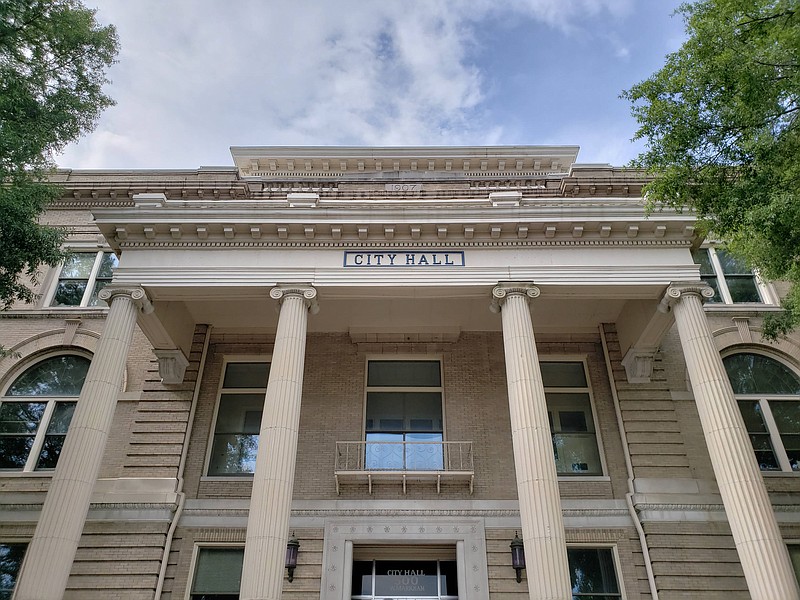Little Rock city directors are scheduled to vote April 20 on whether to call an election this summer on Mayor Frank Scott Jr.'s proposed 1 percentage point sales-tax increase, according to the proposed agenda for the upcoming board meeting.
During a meeting Tuesday, members of the city's Board of Directors will review items and set the agenda for the April 20 meeting.
On the proposed agenda are twin items on the sales-tax increase: an ordinance calling for a July 13 special election, and a resolution stating general spending categories for the revenue the city expects to receive as a result of the tax hike.
Board members must call for the special election in order to trigger the referendum in which voters would be presented with an up-or-down ballot question on adoption of the tax increase.
During his State of the City virtual broadcast March 25, Scott renewed his call for voters to approve the tax increase, after a similar proposal from the mayor was abandoned last year because of the covid-19 outbreak.
According to the mayor's plan, the tax increase would generate approximately $53 million in new annual revenue. Spending over the first 10 years of the tax increase is expected to total nearly $530 million.
Parks and recreation, golf and fitness would receive the largest share of the money, with those categories responsible for 34% of overall spending from the tax increase. Funding would reportedly go toward improvements at Hindman and War Memorial parks, construction of an indoor sports complex and general park improvements, among other projects.
Other categories of planned spending include an early-childhood education framework, improvements to the Little Rock Zoo and public-safety initiatives.
Because the city will allow a separate three-eighths percent sales tax to expire at the end of this year, voter approval of the mayor's 1 percentage point sales-tax increase would result in a net increase to the city's sales-tax rate of 0.625 percentage point.
If voters approve the increase this summer, then the overall sales-tax rate for consumers in Little Rock will be 9.625% beginning Jan. 1.
Scott has pitched the tax increase as a way to make a transformative investment in the city while bringing its overall sales-tax rate to a level similar to other cities in the region, including Birmingham, Ala.; Baton Rouge; and Chattanooga, Tenn.
The infusion of $53 million in revenue to the city's coffers every year would represent an addition that amounts to approximately one-quarter of the city's adopted general-fund budget of $210 million for 2021.
